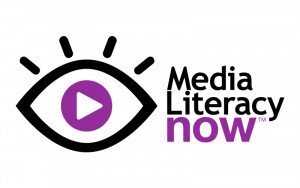Whether you’re focused on your classroom, home, community, or constituents, we have a number of resources and tools available to help you advocate for media literacy education. The MLN Resource Library is offered as one convenient source of information, like any other library.
Want to suggest a resource we should add? Use this form.
PowerPoint Presentation featuring experimenter bias, how to identify it, and how it …
PowerPoint presentation outlines how students can use different questioning techniques to expose …
PowerPoint presentation that uses claims, evidence, and reasoning to focus on common …
PowerPoint presentation that uses claims, evidence, and reasoning to evaluate current scientific …
This lesson helps students develop and practice methods for verifying sources, arguments, …
This lesson allows students to practice reading laterally in a scientific context. …
This comprehensive lesson introduces students to evaluating evidence posted on social media …
This collection of lessons looks at news literacy on a variety of …
This lesson focuses on how media influences politics and society. Students learn …
A four-minute video about determining if a scientific story is factual. Students …
Students observe and reflect on photographs of “nature” and then explore how …
This lesson addresses emotional and behavioral connections to media in the context …
Chemistry students perform experiments to explore the efficacy of efforts to reduce …
The lesson guides students through evaluating the scientific content in a popular …
This lesson focuses on credibility. The central questions are: Can you believe …
This lesson focuses on credibility. The central questions are: Can you believe …
Students identify signs to look for (“red flags”) that indicate information is …
This is a series of six lessons. If the extension activities are …
Students read an article on measles and its alleged effect on immunity …
Students read an article about the misinformation in media regarding spiders. They …
Students learn to evaluate sources for credibility. The lesson focuses on reasons …
This lesson focuses on how to differentiate misinformation from and evolving scientific …
Harmony Square is an online game about fake news. The game’s setting …
This engaging game can be downloaded as an app or played using …

